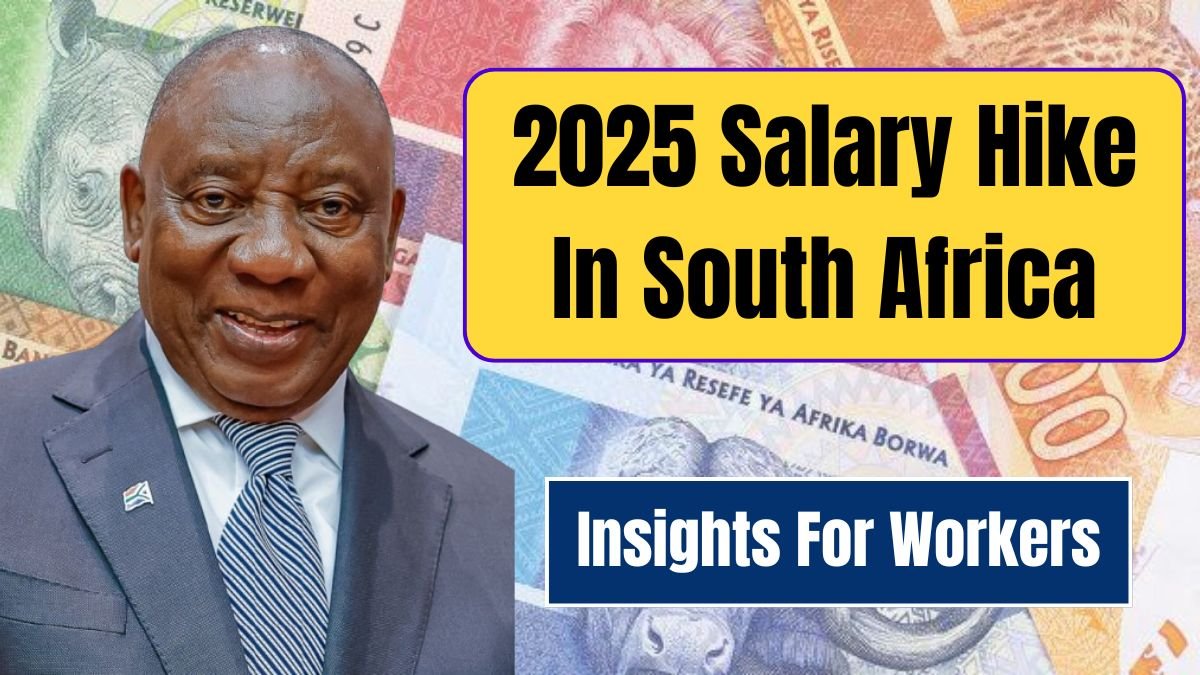The time has come in the year 2025, and South African workers are faced with the inevitable question of how much salary adjustment they will get in a turbulent economic climate. As a general rule, salary increases are usually a function of inflation, performance of a specific sector, and trade negotiations, among others. This is what employees and employers in South Africa can expect as far as salary increases are concerned in 2025.
Economic Condition And Inflation Implication
South Africa’s economic performance plays a vital role in the determination of increments to salaries. For many years the inflation rate has ranged between 4% and 6%, causing dire cost-of-living pressures. With inflation in 2025 expected to be no exception, companies will thus be pushed into increasing wages so as to retain their talent while bearing costs-rising living expenses. However, sluggishness in economic growth and high unemployment may constrain the extent to which employers can increase wages.
Salary Increase Expected By Sector
Usually, the variation in salary increases on sectorial basis, with some taking greater upward strides than most. In 2025, it is predicted that the following proportions of increase will occur:
- Technology and IT: With an ever-increasing demand for digital transformation and innovation, the technology sector becomes vibrant. This means that workers in this sector will most likely earn between percent 6 and 8 increase which represents the highly contested market for skilled IT professionals.
- Healthcare : The health care system is still at the center of action, more so after the pandemic. Many will receive pay increases within the ranges of 5 percent to 7 percent, including nurses, specialists, and allied health professionals.
- Finance and Banking : Proof that the financial market endures all economic uncertainty is indicated by 5 percent to 6 percent salary increments and the bonus play part of a whole package as regards compensation.
- Mining and Energy: The mining industry in South Africa which is the fulcrum of the economy is expected to give moderate increases from 4% to 6%. New energy transition projects would probably open new vistas and create opportunities for potentially higher-than-average wage changes for skilled workers.
- Retail and Hospitality: These two sectors have started recovering from the pandemic’s burden, but expected increments will be modest, averaging 3% to 4%, as companies weigh the expenses of recovery and the profitability that would go with it.
Labor Unions And Negotiations
For example, COSATU and NUMSA are some of South Africa’s labor unions fighting for wage increases that outpace inflation. The year 2025 will see collective bargaining with regards to high minimum wages and wage disparities. Strikes and negotiations are likely to occur in mining, public service, and manufacturing sectors, which are traditional strongholds of unions.
Public Sector Wages
All government employees are keenly watching the developments on the public sector salary negotiations. Budget restraining from the National Treasury may mean that any increases would only be minimal-estimated around 3 to 4 percent. However, the unions representing public servants will be pushing for more to adjust salaries in line with inflation.
What Employees Should Do
Such employees awaiting a rise would do well to consider their market value and performance. Accentuate achievements and in-demand skills to help get that negotiation edge. In addition, a grasp of industry benchmarks will give a realistic measure of salary expectations.
Also Read: SASSA SRD Grant January 2025: Payment Dates And Eligibility Details
